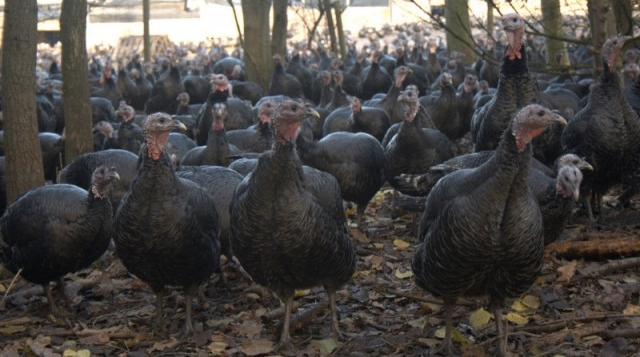
Controlling pathogens in turkey feed can cut total flock mortality by 1% according to data being presented by pathogen control specialist Anitox at the Turkey Science and Production Conference.
Dr. Kurt Richardson, Anitox Chief Science Officer, will highlight the impact of feed-source pathogens in turkeys at clinical and sub-clinical levels, exploring the threat some bacteria present to gut health and performance.
“We know, for example, that a subclinical infection by Clostridia or E. coli reduces the surface area of the intestinal tract by almost 25%, limiting a bird’s ability to derive nutrients from its feed and, as a consequence, reducing feed conversion efficiency and lowering growth rates. What’s less obvious but increasingly well documented are the sub-clinical effects of other non-pathogens in the gut as producers battle to maximize genetic potential. We’ll look at the incidence of feed-source bacteria at sub-clinical levels and conditions such as necrotic enteritis, and consider how irritation of the intestinal tract, poor digestion and absorption of nutrients impact flock uniformity, growth rates and mortality.”
Dr Richardson’s focus on control of feed source pathogens comes at a critical time for the turkey industry; from July formaldehyde-based feed pathogen control treatments will be withdrawn from use in turkey feed for the foreseeable future.
“Much of the data we’ll be reviewing has been compiled during the development of Anitox’s new pathogen control solution for turkey feed. Finio is the result of more than nine years of laboratory and field work in Europe, Asia and the US; the first non-formaldehyde proven to offer control of a broad range of pathogens from mill to feeder.
“As we’ll discuss at the Turkey Conference, residual protection is key. There are several points where contaminant’s can enter the feed chain. Post-pelleting protection, in the absence of formaldehyde treatments, was potentially the most challenging. The data is compelling; feeding rations free from pathogens at the point of consumption is critical to flock productivity and health.”
